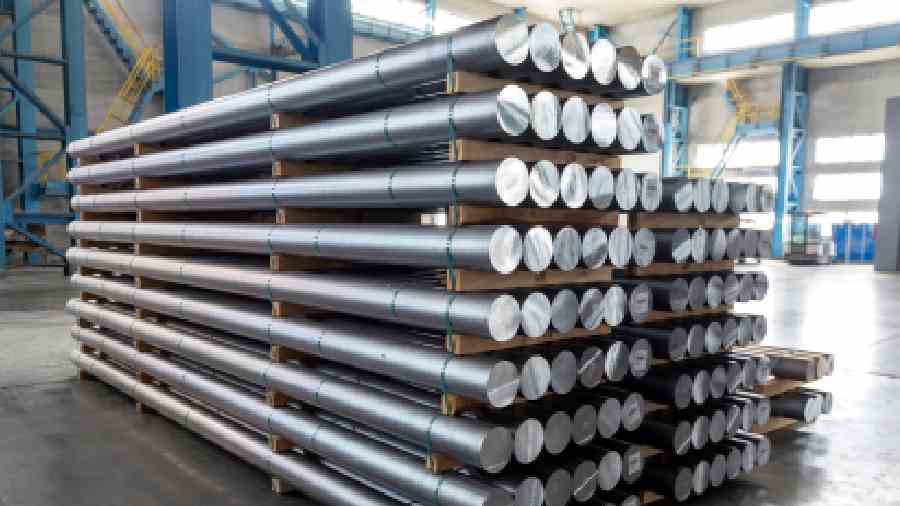The mining industry has sought higher import taxes on metals such as zinc, copper and aluminium to help stem a tide of cheaper imports, especially from China.
The government should raise import taxes to 10-15 percent on several aluminium products, including scrap to 10per cent from 2.5 per cent, the Federation of Indian MineralIndustries (FIMI) said in its pre-budget memorandum to the finance ministry.
The high production costs because of the high incidence of taxes/cess and inverted duty structure on critical raw materials are adversely impacting domestic competitiveness.
India has been adversely impacted due to global developments and the US-China trade war.
The US imposed 10 per cent tariffs on aluminium imports, while China imposed a 25 per cent duty on aluminium scrap imports from the US, with other restrictions.
As India is a natural market for the affected countries with surplus aluminium capacities, they are targeting and dumping their aluminium into India.
The major threat of imports is from China which constitutes over 85 per cent share of downstream aluminium imports. Scrap imports are majorly coming from the US, UK, UAE and Saudi Arabia.
Malaysia is the principal source of primary aluminium — making up over 50 per cent share — as traders take advantage of India’s FTA with Asean and the Comprehensive Economic Co-operation Agreement with Malaysia.
To encourage the domestic aluminium industry, the increasing imports have to be restricted by increasing duty on overall aluminium imports.
Despite the significant presence of primary aluminium capacity and the potential to generate sufficient domestic scrap, India’s consumption of scrap is majorly import-dependent.
The way forward is to encourage domestic recycling of indigenous scrap to promote a circular economy.










